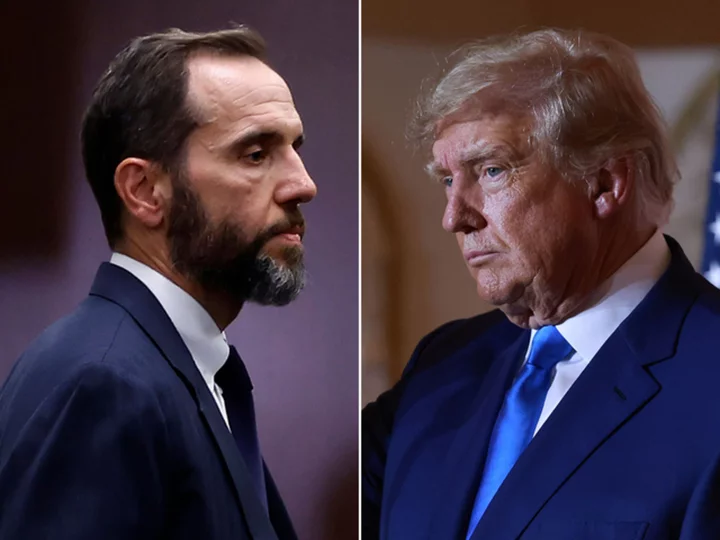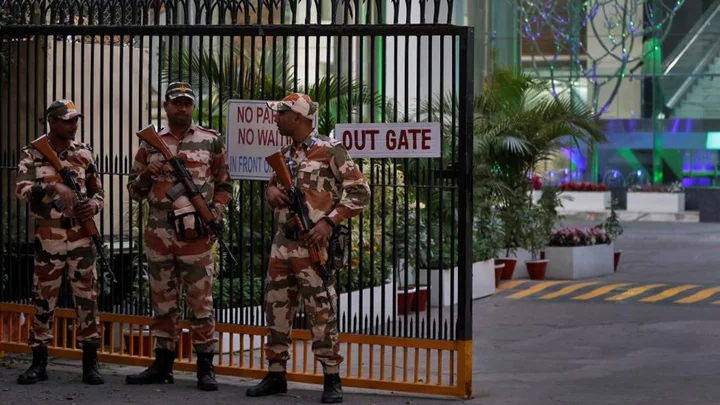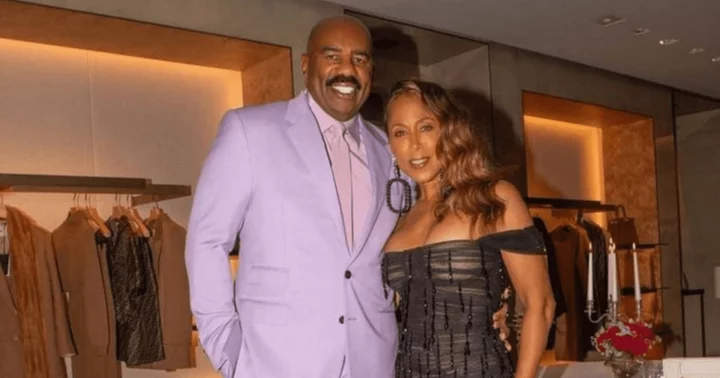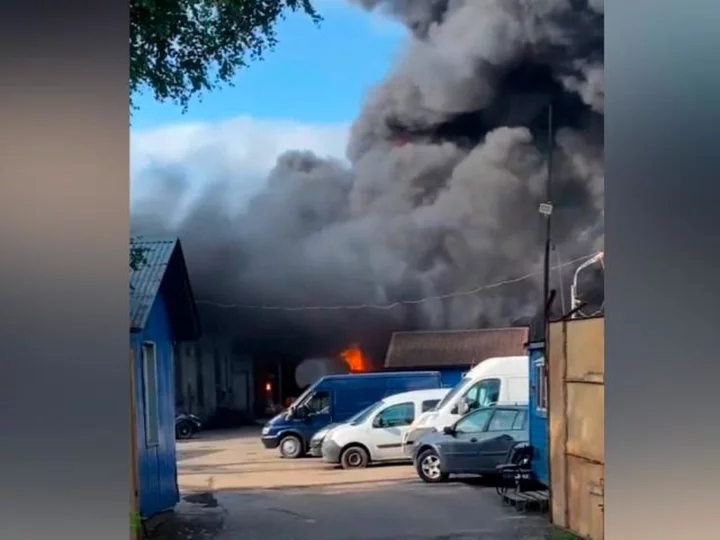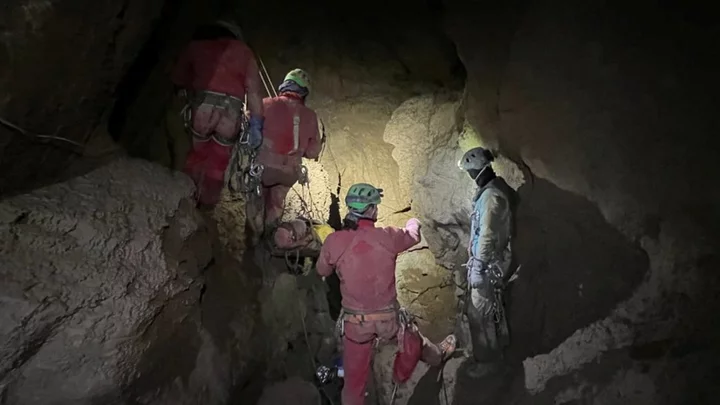Special counsel Jack Smith's team and lawyers for Donald Trump will appear Tuesday for the first time in front of the judge who will preside over the criminal case Smith has brought against the former president, for a hearing that will be procedural in nature but could provoke clashes over how quickly the classified documents case should move to trial.
Both sides have asked to push the trial date months later than this summer -- with Trump wanting it potentially after the 2024 election -- and US District Judge Aileen Cannon has ordered the parties to be prepared to discuss prosecutors' proposal that the trial happen much sooner, starting in mid-December of this year.
The hearing -- which will be held in federal court in Fort Pierce, Florida -- was sought by the prosecutors under a provision of the Classified Information Procedures Act, which establishes the process for deciding how the highly secretive government documents that are at the heart of the prosecution will be handled in the case. Such a proceeding is usually mundane in nature -- the substance of the classified materials that Trump allegedly refused to return to the government will not be discussed -- and typically focused on a scheduling plan for fulfilling the steps that CIPA lays out.
But prosecutors, in court filings, have been at odds with attorneys for Trump and his co-defendant, Walt Nauta, about how much the trial should be delayed, and Tuesday's hearing could set the stage for the scheduling conflict to play out head-to-head.
Trump himself is not expected to attend to the hearing, but Nauta -- who is a bodyman to the former president -- may attend, sources told CNN.
Delaying the case appears to be a key part of Trump's strategy. He and Nauta have suggested in court filings that it may have to wait until after the 2024 election, and they have claimed that the prosecutors have an "unrealistic" timeline for how quickly the pre-trial disputes over classified materials could be resolved.
In addition to the trial date, Trump and Nauta's defense attorneys have already clashed with the Justice Department on timing of even initial procedural steps in the case.
On Monday, prosecutors said in a court filing that the defendants were stonewalling on explaining why they opposed Smith's proposal for a protective order to be issued before the classified discovery is turned over to the defendants.
Any judge tasked with handling such disputes was guaranteed to attract national attention, given the historic nature of a federal prosecution of a former president. But Cannon -- a Trump appointee who was confirmed to the bench in the 2020 post-election lame duck period -- will face additional scrutiny after her move last year to grant a Trump request for a third-party review of an FBI search of his resort in the documents case. Her ruling was overturned by a conservative federal appeals court in a sharply critical opinion.
The type of classified procedures hearing that will happen Tuesday is an opportunity for prosecutors to educate the court on the relevant law -- which is often new to all but the most experienced of judges.
"The filing and the hearing are educating, if necessary, for judges who haven't dealt with this with before -- which is most judges by the way," said Brandon Van Grack, a former Justice Department national security attorney who also worked on Special Counsel Robert Mueller's investigation into the Trump 2016 campaign's Russian links.
"We will hopefully get more details on Tuesday that give us a better sense of, well how long is this really going to delay things?" Van Grack said.
"The biggest tell is going to be, How does [Cannon] react to this? Does her inexperience show?" Brian Greer, a former CIA attorney told CNN.
A law that prevents 'graymail' strategy by defendants
The Classified Information Procedures Act was passed by Congress in 1980, amid complaints by prosecutors that they were being forced to dismiss cases because of a defense strategy called "graymail," in which defendants would threaten to publicly expose classified evidence at trial that was so sensitive to national security, it was not worth it for the government to continue with the case.
"CIPA provides for procedures that serve to balance the government's interest in protecting classified information with the rights of the defendant to a fair trial," said Gregory Gonzalez, a former prosecutor in the Justice Department's National Security Division with experience in cases dealing with classified material.
While usually disagreements on what evidence should be presented to a jury are hashed out close to the start of a trial, or even while the trail is underway, CIPA frontloads the questions about handling classified materials towards the beginning of the pre-trial period. Tuesday's hearing is aimed at discussing the schedule for those issues to be briefed and are usually "uneventful" affairs, Gonzalez said.
"The court will need to make an assessment of how long it will need to resolve the CIPA issues," Gonzalez said.
Prosecutors have already stressed in court filings that they have a plan for handing over the classified evidence over to Trump's and Nauta's teams quickly, while blaming the defense counsel for dragging their feet on getting the security clearances they'll need to access the materials. The evidence being turned over in discovery includes the roughly 340 classified documents that were moved from Trump's White House to his resort in Florida, prosecutors have said in court submissions.
Prosecutors have put forward a brisk schedule for going through the steps CIPA lays out, including a proposed mid-August deadline for the government to say whether certain classified information should be deleted in the discovery that's turned over to the defense. The filing is known as a Section 4 motion and the prosecutors can make their requests under it ex parte, meaning that only the court -- and not the defendants or the public -- would see what they were seeking to withhold and why.
"That's pretty aggressive and it suggests two things: first, DOJ is very well-prepared to meet its discovery obligations," Greer said. "Second, DOJ may be planning to take a light touch with CIPA Section 4 by not redacting, summarizing, or otherwise withholding a lot of classified information during the discovery process."
The classified information law also lays out the steps for the defendants to give notice of what classified information in the case they intend to disclose at trial.
A Trump push for delay
Even in these very preliminary phases of the case, the usually procedural questions around scheduling and the early steps the case could have have been the source of heated filings. Trump and Nauta's lawyers have pushed back at the prosecutors' recommendation that the trial begin at the end of this year, writing in court filings that it was too soon to schedule any trial date, given the "novel, complex, and unique legal issues" they say will arise in the case.
"Indeed, significant effort will be required to sort through the purportedly classified documents once received from the Government before any motions on behalf of the Defendants can even be filed," the defense lawyers wrote, adding that, in " general, the Defendants believe there should simply be no 'secret' evidence, nor any facts concealed from public view relative to the prosecution of a leading Presidential candidate by his political opponents."
The Smith team shot back last week in a filing that tore apart the reasons the Trump team gave for slow-walking the case timeline, calling out the defense counsel specifically for their slowness in submitting the forms required for their security clearances and arguing that sorting through the discovery will not be as complicated as the defendants described.
"In sum, neither the amount of classified discovery in this case nor the timetable for its production is a reason for an indefinite continuance of the trial date," the prosecutors said.
In the case, Trump is facing several counts of willful retention of national defense information. He and Nauta also face charges stemming from allegedly obstructive conduct. They have both plead not guilty.
Due in part to Nauta's delays in obtaining a Florida based lawyer, his arraignment was postponed by a month, which has already pushed the proceedings off the schedule that Smith's team initially proposed. However, in the latest filing, prosecutors said their proposed schedule is still "viable."

